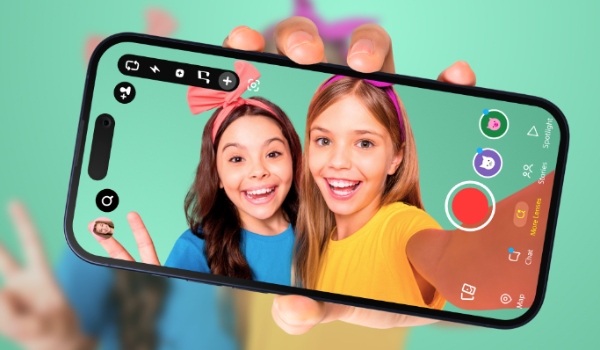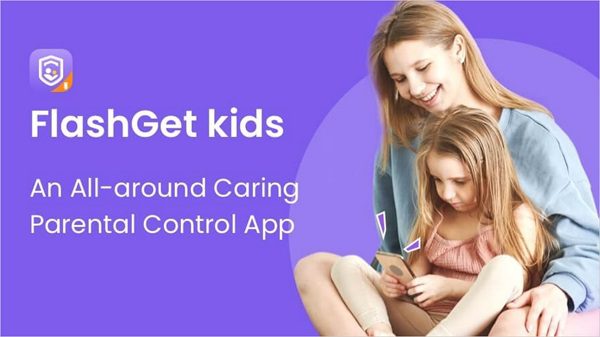Leave aside the disappearing messages and silly dog filters for a moment, is Snapchat detrimental to children’s development? Is Snapchat bad for kids?
This app may seem harmless at first but the urge to keep streaks and the convenience of sending possibly harmful content sets up a hidden world of trouble.
From cyberbullying to unwanted exposure of your child, let’s analyze the reasons why Snapchat might not be the best platform for your child.
Why should Snapchat terrify you?
Snapchat’s temporary messages may seem an entertaining means of communication to kids. This very space creates an environment where kids use cyberbullying to abuse and bully others.
For example, in early 2021, an adolescent girl committed suicide after she had been subjected to bullying. This is following a Snapchat video that mocked her appearance, which had gone viral among her peers.
With the existence of disappearing messages, the bullies can send abusive content to their targets, certain it will vanish in a few seconds, resulting in already blurred wounds that take much longer to heal.
Moreover, there is a fear of being able to get hold of inappropriate content so easily. Unlike other services with a more rigid filtration; kids may encounter some sexually suggestive snaps or stories on Snapchat.
In 2022, a Snapchat story of a local event exposed some teenagers to violence, leading to anxiety among the public.
Predators are among a large number of online users, possibly being a disconcerting risk. Snapchat’s location-sharing feature, Snap Map, is a predator-friendly environment.



Is Snapchat bad for kids? Examining the arguments
The negative impact on mental health and self-esteem
Here are ways in which Snapchat’s focus on these aspects can negatively impact a child’s self-perception:
- Unrealistic beauty standards. Snapchat’s augmented reality filters as well as the editing tools might be the starting point of the young people deciding to tweak their physical appearance according to their reality.
- Fear of missing out (FOMO). Snapchat’s temporal content may end up making youngsters focus on social interaction trends or other experiences in which they have failed to participate in. While unknowingly the feeling that their popularity is less or that they have won quite a few friends.
- Peer pressure and validation seeking. It is easy to get distracted by likes, downloads and streaks, which eventually lead to children finding their self-confidence in other people’s view of them, rather than in themselves.
- Cyberbullying and negative comments. Because cyberbullying and negative comments can be very quick and difficult to be held accountable to, the limited information and the anonymity that social media offers can easily ruin a teen’s self-esteem.
Guide them through the pitfalls with smart controls
Several studies and expert opinions support the negative impact of Snapchat on mental health and self-esteem:
- A report in the Journal of Adolescent Health revealed that there was a relationship between frequent use of Snapchat and increased dissatisfaction with bodies and conformity to social beauty standards amongst adolescents (Salomon & Brown, 2019).
- Dr. Melissa G. Hunt, psychologist, and writer, warns that Snapchat filters and beautification tools can lead to more unrealistic beauty standards and suggest physical appearance as the main feature of one’s identity (Hunt, 2021).
- Dr Jean Twenge, an author and a psychologist has raised the alarm on the link between social media usage and the sharp increase in depression and anxiety among teens which she blames on the constant alignment with other users’ posts, likes, and views (Twenge, 2017).
Exposure to inappropriate content
Inappropriate or explicit material available on Snapchat heightens the serious issues and dangers posed by such content to children.
The fleeting nature of Snapchat’s messages and the simplicity of sharing render it not at all easy to secure low and unsolicited content away from our children.
Here are some potential risks and consequences associated with children’s exposure to explicit or inappropriate content on Snapchat:
- Psychological harm. The exposure to pornographic or inappropriate material is likely to affect young people the most, as they have not yet completed their psychological and emotional development stage.
- Normalization of harmful behaviors. When children are exposed to explicit content they start to consider it normal for them to do things like drug abuse, violence as well as unhealthy sexual behaviors, which may, in turn, affect their attitudes and decision-making.
- Sexualization and objectification. Thanks to direct exposure to obscene messages, people are often reduced to sexual objects, and ideas that are declined or exaggerated with regard to sexuality are presented. This could additionally sexualize kids at a young age and promote gender stereotypes and objectification.
- Addiction and compulsive behavior. The presence of explicit content on Snapchat may lead to compulsive behavior and addictive behavior, particularly among adolescents who are undergoing brain development and, therefore, can easily pick up addictive behaviors.
- Exposure to predatory behavior. Instant reactions and anonymity on the Snapchat platform make this an easy target for various unfriendly characters such as grooming and exploitation with ill intentions.
Privacy and data security concerns
The Snapchat privacy and data collection model seem to be the points that contributed largely to the anxiety of children in terms of safety and mental health.
Here are some key privacy issues that make Snapchat potentially harmful for kids:
- A false sense of security. On the contrary, the screen caps are reserved, not to be deleted, even when the snaps are gone. The camera screenshot and screen recording apps can save these videos in any app. Children can easily develop the notion that they are in a world without any rules and consequently may post nonsense, which could lead to public humiliation if it becomes publicized.
- Limited control over content. Tetris differs from other video games. Having served the player with a piece a player does not own the piece and communicates to them that they have no degree of control over it.
- Location sharing. Snap Map, a geolocation-sharing feature, raises significant privacy concerns, as it allows potential predators to exploit the tool and locate children from a distance, presenting real and immediate risks.
- Data collection. Snap Inc. stands for Snap. Snap Inc. stores large quantities of user data that include browsing history, search history, address book and many others. The use of individual data in advertising has led to cyber-security threats and abuse, particularly for users below the teenage years who do not know how to manage their privacy online.
- Lack of parental controls. In contrast to various other platforms having fairly complex parental control, Snapchat also failed to advance those tools.
Is Snapchat bad for relationships?
Snapchat may have some negative consequences on relationships, especially among teenagers.
- Ephemeral nature and impermanence. The disappearing nature of Snapchat messages might help to create a feeling of impermanence and disposability in relationships. This can cause communication to seem less meaningful and precious as it is not lasting and it is not saved.
- Jealousy and trust issues. Snapchat’s attributes like “best friends” lists and snap streaks may cause jealousy and trust difficulties in relationships. A partner might have doubts or become jealous about who their loved one spends the most time with and talks to more often on the app.
- Sexting and explicit content sharing. The privacy and ephemerality of Snapchat can often push users to engage in risky behaviors such as sexting or sharing of explicitly sexual content. This could create a scenario where someone shares the content actively without obtaining consent, potentially leading to legal repercussions.
- Distraction and attention deficit. The never-ending series of notifications and the compelling effect of Snapchat can be dangerous for people in a relationship and cause an absence of quality attention in relationships. Partners may experience a sense of neglect or insignificance when the application becomes the priority for their loved one.
- Unrealistic expectations and insecurity. Edits and tools like filters on Snapchat can contribute to unrealistic standards of appearance that people have, which can cause insecurity and body image problems in relationships. This can result in loss of closeness and weaken personal confidence.
Snapchat is a communication platform that is both amusing and interactive. However, its interface and features can sometimes cause problems in relationships, especially among younger users.
Promoting responsibility in social media usage and healthy conversations between partners is a very important factor that helps to reduce these negative effects.
Parental control solutions for a safer Snapchat experience
With the growing concerns surrounding the potential negative impacts of Snapchat on children, parental control tools have emerged as valuable resources for proactive parents.



FlashGet Kids is a tool designed to help parents monitor their children’s digital activities. It provides a comprehensive solution, including the management of Snapchat usage.
FlashGet Kids offers a range of parental control features specifically tailored to address the risks associated with Snapchat and other social media platforms.
Here are some key features that can help parents protect their children online:
- App monitoring and usage tracking.: FlashGet Kids allows parents to monitor their children’s app usage, including Snapchat. Parents can track the time spent on the app, the frequency of usage, and even view the content of messages and shared media.
- Content filtering and blocking. The tool enables parents to filter and block inappropriate or explicit content that may be shared on Snapchat or other platforms. This feature can help prevent children from accessing or being exposed to harmful or age-inappropriate material.
- Location tracking. FlashGet Kids offers real-time location tracking for children, giving parents peace of mind. This feature is especially useful in ensuring kids avoid risky activities or meeting strangers through Snapchat.
- Screen time management. Parents can set limits on the amount of time their children can spend on Snapchat and other apps, ensuring a healthy balance between online activities and other responsibilities or interests.
- Reporting and alerts. FlashGet Kids can send alerts to parents regarding potentially concerning activities on their child’s device. This feature allows for timely intervention and open communication.
Conclusion
Snapchat in the virtual world and the actual world are totally different. Snapchat has invisible messages and the coolest filters, but the actual world contains real dangers for children.
Yes, the app is great in providing convenience, but cyber bullies and online predators can make the features of the app a dangerous minefield. This can affect your child’s mental health and online safety.
Rather than getting caught up in the tornado of established perfection ideal, let us have kids to find out alternative ways of interrelating and communicating.
Look for the safe and talk to your children about the online world.
FAQ
Why Snapchat is bad for mental health?
The emphasis on looks, filters, and popularity on Snapchat can create distorted beauty ideals, negative body image, fear of missing out, and validation crises. This has a negative impact on the mental health and self-esteem of users.
Is Snapchat safe for sending private photos?
No, Snapchat is not the best option for sending private pictures.The possibility that people can capture disappearing messages through screenshots or recordings presents a privacy issue. This action allows for the potential exploitation or harassment of someone by sharing the content without permission.
Is sexting on Snapchat bad?
Certainly, sexting on Snapchat can go wrong when it comes to young people. Spreading explicit information without consent can lead to legal issues and exploitation. This action may also cause emotional discomfort and a loss of trust.
Can parents monitor Snapchat?
Yes, parents can employ parental control apps, for example, FlashGet Kids, to get a look at their child’s Snapchat use. These features of apps allow parents to follow application activity and set limits. They also enable parents to filter content and receive alerts about possible risks to their loved ones.

